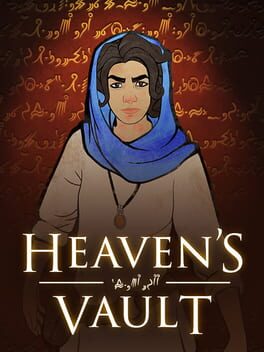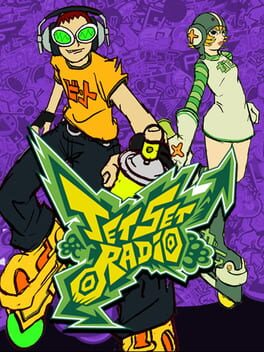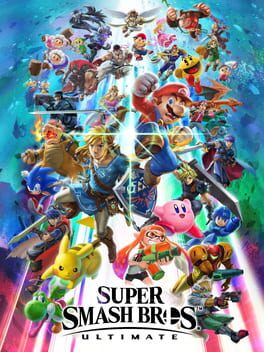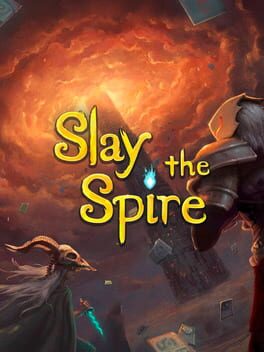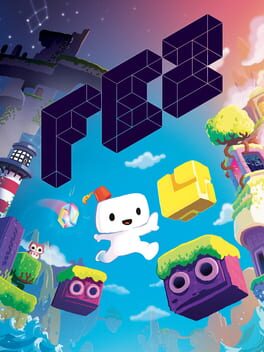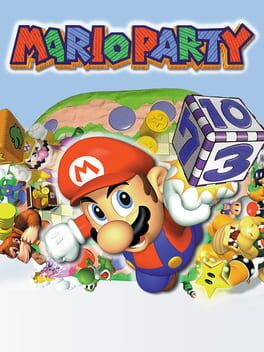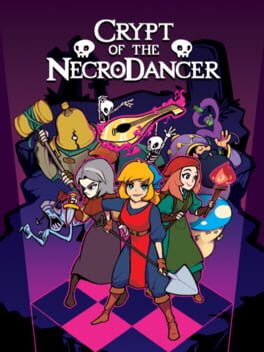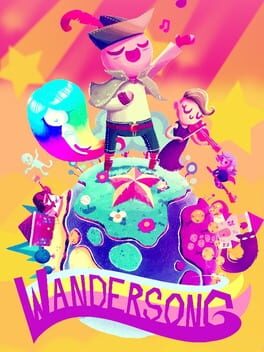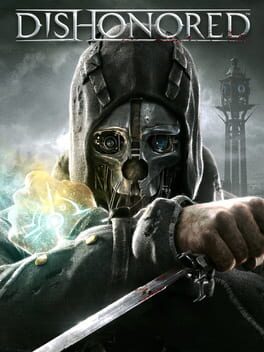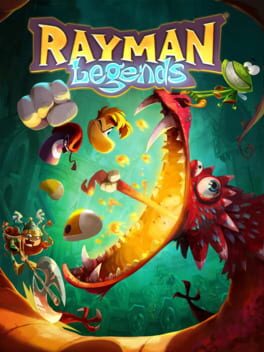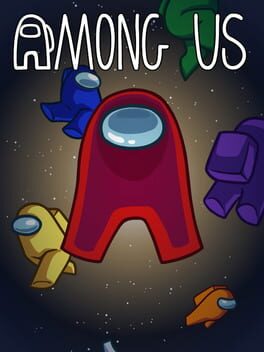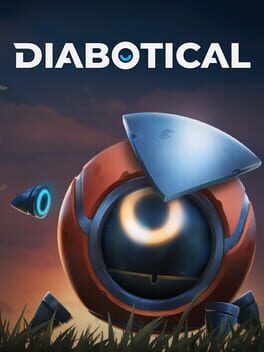AutumnLily
1986
Clearly archaic, most notably in how obtuse a lot of the progression and secrets are. The worst part is definitely everything associated with the bombs, hidden doorways you need to blow open with no indication as to the points you're meant to lay this somewhat scarce resource in front of. That kind of design mentality spreads to a lot of different places outside of just the bomb mechanic, making the game somewhere between tedious and frustrating to progress in without outside advice; I get that at the time this would make the game seem more mysterious and expansive, but this style of design has largely disappeared for a reason. I also hate how much the game encourages grinding due to not fully restoring your health when you respawn and requiring you to collect large quantities of money for progression-critical items.
I enjoyed this game quite a bit more than my score for it indicates (maybe a 3/5 or thereabouts), but only thanks to using an overworld map that listed where every character, dungeon and bomb/fire secret was, a guide for the last few dungeons, and save states to generate money with the gambling minigame; I'm fairly sure I would have abandoned The Legend of Zelda in frustration well before the end without these things. I'm glad I played the game, it's an important piece of game history, even now it still retains a sense of wonder to its exploration at times, and it's easy to see how it really helped develop the language of video games, but I really can't recommend people actually play the game outside of anything other than historical curiosity.
I enjoyed this game quite a bit more than my score for it indicates (maybe a 3/5 or thereabouts), but only thanks to using an overworld map that listed where every character, dungeon and bomb/fire secret was, a guide for the last few dungeons, and save states to generate money with the gambling minigame; I'm fairly sure I would have abandoned The Legend of Zelda in frustration well before the end without these things. I'm glad I played the game, it's an important piece of game history, even now it still retains a sense of wonder to its exploration at times, and it's easy to see how it really helped develop the language of video games, but I really can't recommend people actually play the game outside of anything other than historical curiosity.
2019
Heaven's Vault's high-points soar. These moments largely revolve around the quiet wonder involved in piecing together the past of the Nebula, in finding some old item or deciphering some piece of text, gaining some understanding of how things were. As someone who is not into archaeology this game is very good at letting you into that world and letting you understand the appeal, and much of the game is chasing these moments of revelation, however large or small. The translation mechanic is kind of perfect in this context for how it lets you see through Aliya's eyes, lets you directly engage with both seeking understanding whilst also still having a curtain of mystery shrouding things, doubt surrounding the discoveries you make.
I loved both how the game felt like it gave me a large amount of agency with the decisions I wanted to make, these decisions that have very tangible effects on the world you're in and people you encounter, and also with how nonlinear the game is at points. Both this, and the potential for different possible translations to warp your perspective on the past, give you the feeling that the experience you're having is a fairly unique one from what other players might be going through. In addition to all of this the lore of the game, and some of the implications of occurrences late into it, is fascinating, and I love the art-style used for the characters and how it emphasises this feeling of transience, that you too shall become a piece of the past.
Despite all of this there are various mechanical issues with the game for me that are almost certainly going to prevent me from engaging with New Game+ (as interesting as the game manages to make that concept). Chiefly, the sailing sections that are initially beautiful soon become tedious and very repetitive later in the game as they grow in length whilst you hunt new sites to explore. I was also very frustrated with the two characters you can trade items to for information who will only do one or two things for you per visit before you have to leave the moon and then return to initiate another exchange; at its worst the game can devolve into a bunch of busywork, and these trade sequences are a particularly grating example of this.
All the other flaws are much more minor things that still nudged me out of the experience periodically; there's some awkward sequencing with dialogue that will crop up sometimes either as a bug or due to the game struggling a bit with its nonlinear nature, some of the dialogue in any individual conversation can end up coming to you in a non-sensical sequence depending on choices you make of what to say, the controls and display both become pretty unpleasant during particularly long translations, action indicators disappearing when you're talking with Six makes it hard to ever actually walk-and-talk at the same time in case you miss something you can do. I could probably continue this list for a little bit longer of things that just make the experience feel unpolished.
I never thought I would get so invested in a game about archaeology though, and there are some wonderous moments when the game hits its stride so I will still remember the game largely-fondly even if I can't imagine ever returning to it.
I loved both how the game felt like it gave me a large amount of agency with the decisions I wanted to make, these decisions that have very tangible effects on the world you're in and people you encounter, and also with how nonlinear the game is at points. Both this, and the potential for different possible translations to warp your perspective on the past, give you the feeling that the experience you're having is a fairly unique one from what other players might be going through. In addition to all of this the lore of the game, and some of the implications of occurrences late into it, is fascinating, and I love the art-style used for the characters and how it emphasises this feeling of transience, that you too shall become a piece of the past.
Despite all of this there are various mechanical issues with the game for me that are almost certainly going to prevent me from engaging with New Game+ (as interesting as the game manages to make that concept). Chiefly, the sailing sections that are initially beautiful soon become tedious and very repetitive later in the game as they grow in length whilst you hunt new sites to explore. I was also very frustrated with the two characters you can trade items to for information who will only do one or two things for you per visit before you have to leave the moon and then return to initiate another exchange; at its worst the game can devolve into a bunch of busywork, and these trade sequences are a particularly grating example of this.
All the other flaws are much more minor things that still nudged me out of the experience periodically; there's some awkward sequencing with dialogue that will crop up sometimes either as a bug or due to the game struggling a bit with its nonlinear nature, some of the dialogue in any individual conversation can end up coming to you in a non-sensical sequence depending on choices you make of what to say, the controls and display both become pretty unpleasant during particularly long translations, action indicators disappearing when you're talking with Six makes it hard to ever actually walk-and-talk at the same time in case you miss something you can do. I could probably continue this list for a little bit longer of things that just make the experience feel unpolished.
I never thought I would get so invested in a game about archaeology though, and there are some wonderous moments when the game hits its stride so I will still remember the game largely-fondly even if I can't imagine ever returning to it.
2012
2019
Bounced off this a reasonable amount; probably played about 10-15 hours over the course of the past week or so, and I anticipate playing it more once I'm able to travel again (it seems good for passing time during train/plane journeys) but I can't say I'm compelled enough to spend time on this whilst stuck at home.
There are a few things holding this back for me. I felt like a lot of the time I was having to choose between either engaging in a bunch of busywork or risking future feelbads (trying to balance out of the upsides/downsides of the myriad possible map routes, setting up turn/action-counting relics for the next fight, triple-checking the math on a really complicated turn before committing to either offense or defense). Removing cards (and to an extent upgrading cards) feels so much better than the other options presented that it's hard not to bias towards them in ways that make some choices straightforward/boring (I'd love to have seen one of the four core characters treat this part of the game mechanically differently somehow). Defect and Watcher, based on my initial experiences, felt dramatically more interesting than the other two characters. The game's aesthetic was kind of bland and unmemorable for me (though completely fine).
The biggest problem for me personally is that the game was just very easy, though. Across my first six runs I came close to dying once? I really wish there was a way to skip through ascensions, such that I could challenge ascension 5 even though I've only cleared ascension 1; make ascension 5 even harder for people who want to do things this way to discourage this behaviour if you want, but at least give me the option rather than making me grind for however many hours to get to the point where I feel like I am at risk of losing. I can get around this by just exclusively playing Custom Game mode, but not being able to engage with the main mode sounds unsatisfying enough to me that I'd rather just take a break from the game.
Anyways, the game is a perfectly solid attempt at mixing roguelite and deckbuilder. My rating is perhaps a tad harsh as I recognise the game will appeal to me more once I've unlocked higher ascensions, and that the gameplay with both Defect and Watcher is generally fun and has some great high-points. I do intend to play the game more at some point down the road with all this in mind, but my early experience has been soured a bit and I'd rather just do something else for now.
There are a few things holding this back for me. I felt like a lot of the time I was having to choose between either engaging in a bunch of busywork or risking future feelbads (trying to balance out of the upsides/downsides of the myriad possible map routes, setting up turn/action-counting relics for the next fight, triple-checking the math on a really complicated turn before committing to either offense or defense). Removing cards (and to an extent upgrading cards) feels so much better than the other options presented that it's hard not to bias towards them in ways that make some choices straightforward/boring (I'd love to have seen one of the four core characters treat this part of the game mechanically differently somehow). Defect and Watcher, based on my initial experiences, felt dramatically more interesting than the other two characters. The game's aesthetic was kind of bland and unmemorable for me (though completely fine).
The biggest problem for me personally is that the game was just very easy, though. Across my first six runs I came close to dying once? I really wish there was a way to skip through ascensions, such that I could challenge ascension 5 even though I've only cleared ascension 1; make ascension 5 even harder for people who want to do things this way to discourage this behaviour if you want, but at least give me the option rather than making me grind for however many hours to get to the point where I feel like I am at risk of losing. I can get around this by just exclusively playing Custom Game mode, but not being able to engage with the main mode sounds unsatisfying enough to me that I'd rather just take a break from the game.
Anyways, the game is a perfectly solid attempt at mixing roguelite and deckbuilder. My rating is perhaps a tad harsh as I recognise the game will appeal to me more once I've unlocked higher ascensions, and that the gameplay with both Defect and Watcher is generally fun and has some great high-points. I do intend to play the game more at some point down the road with all this in mind, but my early experience has been soured a bit and I'd rather just do something else for now.
2012
I think the game is likely better than my memory of it gives credit and that I likely entered it with the wrong mindset. That said, considering how uuuh not-great the creator is, I'm pretty unmotivated to give this a second chance.
Found the map pretty frustratingly designed and hard to gain use out of without just memorising half the routes anyways, which I think is something that would bug me even were I to like the game more second time round.
Found the map pretty frustratingly designed and hard to gain use out of without just memorising half the routes anyways, which I think is something that would bug me even were I to like the game more second time round.
1998
I wish I liked this game more, because there's a bunch of stuff about it that is kind of awesome and I am just generally super on-board with the concept of a rhythm roguelite. That said I was not fond of how much of the game felt like it was just pattern memorisation, and that feels even more the case trying to return to it months later.
2018
Bounced off this pretty hard, abandoning it as Act 4 was about to begin. The biggest problem is the rpg sections take up a huge portion of the game-time despite being largely insipid. I'm given no reason to care about this quest beyond saving the world being a generically good thing to do, and no reason to care about these characters who are at best shallow and one-note (he's the happy one, she's the grumpy one, etc) and at worst have a habit of all blending together and sounding the same. I spent the majority of the rpg sections just bored.
The platforming and puzzle-solving sections are largely fine but rarely achieve much more than that, with the mechanics I saw varying from decent but underdeveloped, to pretty awkward. That said, I strongly disliked the song portions, which depending on which approach the game takes either lack a sense of rhythm or lack a sense of my actions actually mattering at all. Also encountered few small bugs, and the controls for the singing did not feel very smooth requiring you to be very specific with you control-stick movements.
Honestly talking myself down on this the more and more I type.
The platforming and puzzle-solving sections are largely fine but rarely achieve much more than that, with the mechanics I saw varying from decent but underdeveloped, to pretty awkward. That said, I strongly disliked the song portions, which depending on which approach the game takes either lack a sense of rhythm or lack a sense of my actions actually mattering at all. Also encountered few small bugs, and the controls for the singing did not feel very smooth requiring you to be very specific with you control-stick movements.
Honestly talking myself down on this the more and more I type.
2017
I've quickly developed an intense love for and fascination with this game. Probably the most remarkable thing about it for me is how the world and story can both feel really fleshed out, immersive and engaging, and then some new detail will emerge that shakes up the very foundation of all of this in some big way and yet this space you're engaging with becomes more convincing as a result, not less. It's amazing to me how the game manages to keep redefining your relationship to it in this manner, and yet the effect was always such as to draw me in further rather than push me away.
Somehow for me this process continued even after the game had concluded, with the side materials (https://theark.wiki/w/I_just_got_Ending_E) redefining my relationship with aspects of the game too. The word 'journey' is thrown around a lot, but my experience with this game was quite literally an emotional journey, one that even brought me to tears at points, a journey that continues even after the game has reached its end.
As well as being incredibly well designed from a narrative perspective, the philosophical ideas the game tackles are fascinating, and the way in which the game's structure is built with these in mind is something that is honestly kind of remarkable. My first time completing the game (by which I mean, getting to ending E) was, in this sense too, a journey, but there's also this feeling that there is so much to be unpacked here, and so much that only grows in impact once given full context, that I can see myself continuing to think, feel and explore new emotions, thoughts and ideas on repeat playthroughs. Despite tackling heavy, challenging ideas though, the game is good at managing to not be too heavy except when it needs to be; it has a delightful sense of humour, and is very willing to be silly at the right moments. I can't even begin to imagine the balancing act involved in making all of this work at once.
I have a dear love for these characters, with all their human imperfections and struggles, their hopes and dreams and fears and losses, and the world you explore with them is wonderfully realised. This is both in terms of the detail with which it evokes this dystopia, and also on a technical level of how beautiful these environments are and how well the music compliments them, helping evoke the emotions caught within these locations.
I don't think the game is wholly perfect by any means, though the imperfections rarely annoyed me for any great length of time. The side quests lean a bit too heavily into fairly simple fetch quests, and a handful of the side quests are just frustrating; that said the process of completing side quests feels rewarding with many of them meaningfully contributing either to world-building or the game's philosophical concerns. The base combat can get a bit repetitive after the 20 hour mark or so, and you can easily find yourself over-levelled for the fights you're engaging in; that said there's a gracefulness to the movement in the game that makes the combat generally satisfying, and the game is keen to dip into different genres and styles to try and mix things up and present different experiences.
I could probably list a few more minor complaints like this but it always feels like there's some twist that makes it actually fine, and like ultimately it just doesn't matter because everything else the game is doing in evoking this world, telling this story, and calling forth these emotions, is just so good. I can't remember the last time a game made me care this much, and feel this much.
Somehow for me this process continued even after the game had concluded, with the side materials (https://theark.wiki/w/I_just_got_Ending_E) redefining my relationship with aspects of the game too. The word 'journey' is thrown around a lot, but my experience with this game was quite literally an emotional journey, one that even brought me to tears at points, a journey that continues even after the game has reached its end.
As well as being incredibly well designed from a narrative perspective, the philosophical ideas the game tackles are fascinating, and the way in which the game's structure is built with these in mind is something that is honestly kind of remarkable. My first time completing the game (by which I mean, getting to ending E) was, in this sense too, a journey, but there's also this feeling that there is so much to be unpacked here, and so much that only grows in impact once given full context, that I can see myself continuing to think, feel and explore new emotions, thoughts and ideas on repeat playthroughs. Despite tackling heavy, challenging ideas though, the game is good at managing to not be too heavy except when it needs to be; it has a delightful sense of humour, and is very willing to be silly at the right moments. I can't even begin to imagine the balancing act involved in making all of this work at once.
I have a dear love for these characters, with all their human imperfections and struggles, their hopes and dreams and fears and losses, and the world you explore with them is wonderfully realised. This is both in terms of the detail with which it evokes this dystopia, and also on a technical level of how beautiful these environments are and how well the music compliments them, helping evoke the emotions caught within these locations.
I don't think the game is wholly perfect by any means, though the imperfections rarely annoyed me for any great length of time. The side quests lean a bit too heavily into fairly simple fetch quests, and a handful of the side quests are just frustrating; that said the process of completing side quests feels rewarding with many of them meaningfully contributing either to world-building or the game's philosophical concerns. The base combat can get a bit repetitive after the 20 hour mark or so, and you can easily find yourself over-levelled for the fights you're engaging in; that said there's a gracefulness to the movement in the game that makes the combat generally satisfying, and the game is keen to dip into different genres and styles to try and mix things up and present different experiences.
I could probably list a few more minor complaints like this but it always feels like there's some twist that makes it actually fine, and like ultimately it just doesn't matter because everything else the game is doing in evoking this world, telling this story, and calling forth these emotions, is just so good. I can't remember the last time a game made me care this much, and feel this much.
2012
Abandoned this about 7 hours in, towards the end of the first proper mission.
I deeply disliked the effect the morality system has on the game. The game tells you from very early on that you have to avoid killing people in order to get a better ending. Upon learning this, and wanting a good ending, half the items and skills in the game became completely irrelevant if they were intended to kill enemies. Meanwhile the game turned into a mad flurry of saving and reloading (which I find very not-fun in games) because if an enemy ever saw you your inability to kill them meant all you'd be able to do is run away anyways, so if you don't save every time you knock someone unconscious and load whenever you're spotted the game takes forever. The condition attached to the good ending is also just very wishy-washy in a way that stressed me out too; how many enemies can I get away with killing?, am I going to be punished for humans dying for reasons beyond my control (apparently, yes, which was very frustrating)?, am I allowed to kill guard dogs without it hurting my good-ending chances (apparently yes, but I'd really like this to be stated in-game as it's just not intuitive)? Remove the morality system, and make killing people or being a stealthy ghost feel more like a play-style choice rather than something I'm being judged on with rewards being attached to one of the two options, and I'd instantly be much more on-board with the game.
Somewhat relatedly, I found playing the game a very stressful experience. When you're trying to play stealthily, such that you won't let yourself kill or attack anyone in an attempt to get the good-ending, you're super vulnerable. If an enemy sees you all you can do is run away and hide (as they take chase). Mechanically playing with this approach already starts to feel like its bordering on being a horror-game (weak, vulnerable protagonist tries to avoid relentless, essentially-immortal enemies whilst trying to reach the thing that will stop them attacking you), but these vibes are emphasised many times over by the oppressive atmosphere that the game's plague-ridden flavour conjures up. I think either the flavour or the mechanics on their own would have been fine for me, but combined these things led to me just being constantly stressed, on-edge and miserable.
A bunch of other stuff bothered me beyond this; it's very unclear what the range of sight on enemies actually is, attempting to knock enemies unconscious from behind just wouldn't work some amount of the time, I personally really dislike that the game requires I kill rats. Probably the biggest point in the game's favour, from the small portion I played, is that the two powers I unlocked (blink-teleporting and night-sight-that-lets-you-see-lifeforms-through-walls) are compelling and pleasing to use. The worlds I was exploring also seemed to have an impressive level of depth to them too, enough so that I'm a bit sad that not enjoying the way the game encourages me to engage with it mechanically prevented me from exploring it further.
I deeply disliked the effect the morality system has on the game. The game tells you from very early on that you have to avoid killing people in order to get a better ending. Upon learning this, and wanting a good ending, half the items and skills in the game became completely irrelevant if they were intended to kill enemies. Meanwhile the game turned into a mad flurry of saving and reloading (which I find very not-fun in games) because if an enemy ever saw you your inability to kill them meant all you'd be able to do is run away anyways, so if you don't save every time you knock someone unconscious and load whenever you're spotted the game takes forever. The condition attached to the good ending is also just very wishy-washy in a way that stressed me out too; how many enemies can I get away with killing?, am I going to be punished for humans dying for reasons beyond my control (apparently, yes, which was very frustrating)?, am I allowed to kill guard dogs without it hurting my good-ending chances (apparently yes, but I'd really like this to be stated in-game as it's just not intuitive)? Remove the morality system, and make killing people or being a stealthy ghost feel more like a play-style choice rather than something I'm being judged on with rewards being attached to one of the two options, and I'd instantly be much more on-board with the game.
Somewhat relatedly, I found playing the game a very stressful experience. When you're trying to play stealthily, such that you won't let yourself kill or attack anyone in an attempt to get the good-ending, you're super vulnerable. If an enemy sees you all you can do is run away and hide (as they take chase). Mechanically playing with this approach already starts to feel like its bordering on being a horror-game (weak, vulnerable protagonist tries to avoid relentless, essentially-immortal enemies whilst trying to reach the thing that will stop them attacking you), but these vibes are emphasised many times over by the oppressive atmosphere that the game's plague-ridden flavour conjures up. I think either the flavour or the mechanics on their own would have been fine for me, but combined these things led to me just being constantly stressed, on-edge and miserable.
A bunch of other stuff bothered me beyond this; it's very unclear what the range of sight on enemies actually is, attempting to knock enemies unconscious from behind just wouldn't work some amount of the time, I personally really dislike that the game requires I kill rats. Probably the biggest point in the game's favour, from the small portion I played, is that the two powers I unlocked (blink-teleporting and night-sight-that-lets-you-see-lifeforms-through-walls) are compelling and pleasing to use. The worlds I was exploring also seemed to have an impressive level of depth to them too, enough so that I'm a bit sad that not enjoying the way the game encourages me to engage with it mechanically prevented me from exploring it further.
2018
I've sunk around 100 hours into Hades. Unsurprisingly I think the game has a lot going for it, the core gameplay is very satisfying, the game gives just enough variety in the experiences it provides whilst having enough consistency to it that doing well is much more about mastering its mechanics than rolling the perfect mix of boons. Of particular note I love the player agency offered in the boons system giving you a lot of choice over the build that will come together this run, and the heat gauge which lets you up the difficulty whilst crafting an experience you'll actually still enjoy.
Beyond that the production quality is incredible, particular standouts being the music which is exciting and enjoyable but able to withstand many hours of repeated listening, and the character designs that are (almost) all just extremely evocative and endearing, each coming with ludicrous amounts of unique dialogue attached.
Beyond all this, beyond all the ways the game interweaves the lore of real mythology into its world, there's just something so conceptually compelling going on here too; the core gameplay loop and the reasoning behind it just makes so much sense, like of course a tale of someone breaking free from the underworld would be a roguelite, of course his inability to survive on the surface sets up perfectly for repeated gameplay loops even after you've "beaten" the game for the first time. It all just works.
That said, I've mellowed a lot on Hades since I put it down a few months ago (and returned to update this review). I still think it's a great game with a lot going for it, but I wish I felt like its true ending respected the player's time a bit more; it takes somewhere in the realm of 80 hours to get to it, but my best experiences with the game were all in my opening 20 or 30 hours of playing and I never really found myself recapturing that initial excitement. It doesn't help that once the heat level is pushed high enough the game stops really becoming fun, all its designs starting to crumble under the weight of however many different modifiers layered on top of one another, some mutated form of its former glory. As much as I enjoyed much of my time with Hades, and as much as I respect a lot of what it is doing, I'm unsure I will ever be returning to it.
Beyond that the production quality is incredible, particular standouts being the music which is exciting and enjoyable but able to withstand many hours of repeated listening, and the character designs that are (almost) all just extremely evocative and endearing, each coming with ludicrous amounts of unique dialogue attached.
Beyond all this, beyond all the ways the game interweaves the lore of real mythology into its world, there's just something so conceptually compelling going on here too; the core gameplay loop and the reasoning behind it just makes so much sense, like of course a tale of someone breaking free from the underworld would be a roguelite, of course his inability to survive on the surface sets up perfectly for repeated gameplay loops even after you've "beaten" the game for the first time. It all just works.
That said, I've mellowed a lot on Hades since I put it down a few months ago (and returned to update this review). I still think it's a great game with a lot going for it, but I wish I felt like its true ending respected the player's time a bit more; it takes somewhere in the realm of 80 hours to get to it, but my best experiences with the game were all in my opening 20 or 30 hours of playing and I never really found myself recapturing that initial excitement. It doesn't help that once the heat level is pushed high enough the game stops really becoming fun, all its designs starting to crumble under the weight of however many different modifiers layered on top of one another, some mutated form of its former glory. As much as I enjoyed much of my time with Hades, and as much as I respect a lot of what it is doing, I'm unsure I will ever be returning to it.
2013
The core Legends content is quite enjoyable. Outside of the music levels, which are close to platforming perfection, there's nothing particularly memorable here but it all trucks along quite enjoyably, and has both a lot of neat ideas and a good sense of flow to it. I'd probably give like a 7.5/10 or something to this part of the game if it existed in a vacuum.
The Murphy content and Origins content is just...so much worse though. The Origins content in particular is just...subtly more frustrating and less fun in every conceivable way than the core Legends content? The Origins bosses feel particularly egregiously designed, and the flying sections are just dull.
It's weird to think that if you stripped away a bunch of content from this game I would actually just think much more positively of it.
The Murphy content and Origins content is just...so much worse though. The Origins content in particular is just...subtly more frustrating and less fun in every conceivable way than the core Legends content? The Origins bosses feel particularly egregiously designed, and the flying sections are just dull.
It's weird to think that if you stripped away a bunch of content from this game I would actually just think much more positively of it.
2018
Pretty effective as social deduction game, a horror game, and just some silly fun to mess around with with friends. As someone who dislikes Werewolf this gets a lot of things right that that game fails at.
On a logistical level I do find it a bit frustrating how hard it is to get a 10 person game together with people you know, which is awkward as the game is noticeably worse once you have less than 9.
On a logistical level I do find it a bit frustrating how hard it is to get a 10 person game together with people you know, which is awkward as the game is noticeably worse once you have less than 9.
2020
I really hate all this mastery pass, and daily challenge stuff and wish games would stop trying to manufacture addiction and take advantage of FOMO.
Even outside of that, the game is...fine? Arena shooters were a lot more fun when I was young and feel a bit shallow to me now I think, and when I tried the game none of the arenas felt like an appropriate size for 1v1 play which is sad, but it was a solid enough time running around with friends pew-pewing stuff.
Even outside of that, the game is...fine? Arena shooters were a lot more fun when I was young and feel a bit shallow to me now I think, and when I tried the game none of the arenas felt like an appropriate size for 1v1 play which is sad, but it was a solid enough time running around with friends pew-pewing stuff.

